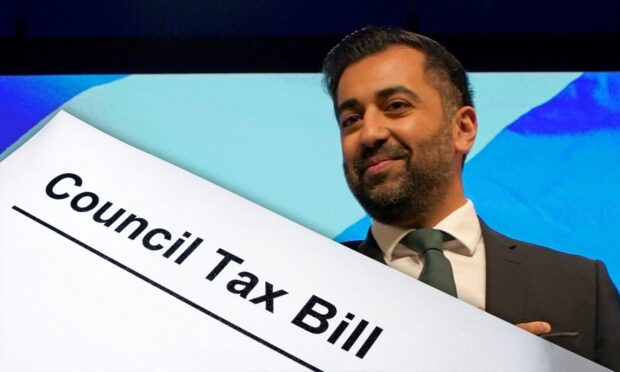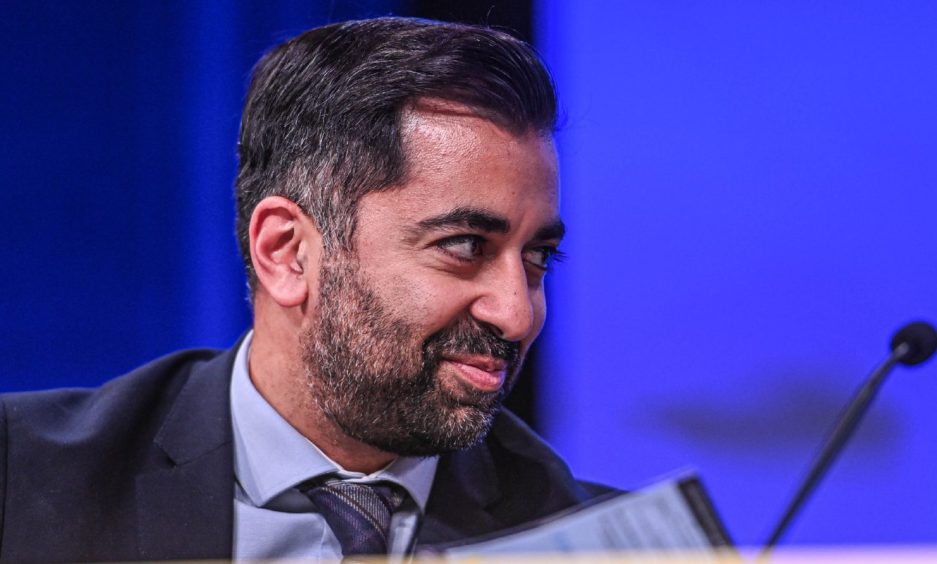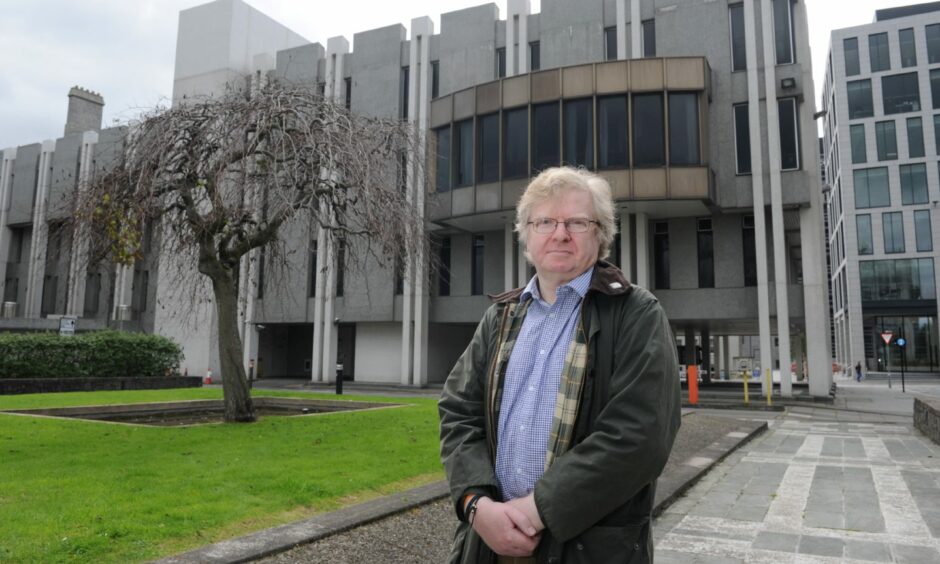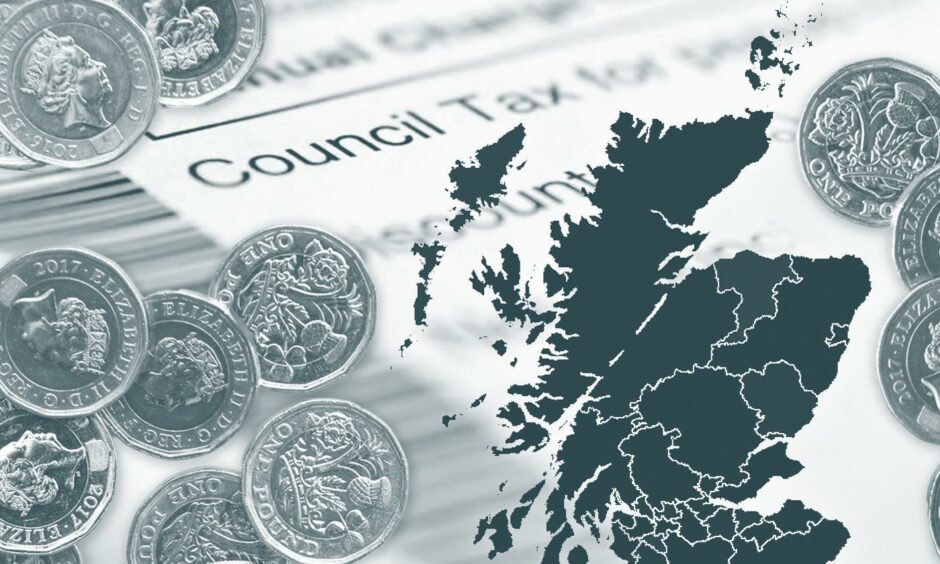Humza Yousaf’s plan for a council tax freeze from April wipes out expected bill increases for around 100,000 property owners in the north-east, Moray, Highlands and islands, at a time of tight family budgets.
The first minister promises the freeze will be “fully funded” by the Scottish Government.
But the surprise announcement, made during his speech to SNP conference last autumn, quickly teed up a big fight with council leaders and Green colleagues.
They are already under significant financial strain and struggle to balance the books.
Libraries and swimming pools have been closed in parts of Aberdeen as money drains away. The cash is also vital to paying for every day services, from bin collections to education.
So is there a hidden danger to this eye-catching policy?
What has been announced?
Mr Yousaf’s freeze will cover all of Scotland’s 32 local authorities from April.
It means rates will remain at current levels when councils set their budgets for 2024-25.
In July, we revealed 100,000 households across the north and north-east of Scotland were at risk of being hit by “bombshell” tax rises as high as 22%.
The SNP leader says the measure will help households during a cost of living crisis.
He said: “We will make sure councils are funded by the government for that council tax freeze.”
How have councils responded?
Councillors in Argyll and Bute were the first to defy the government pledge. They agreed a 10% increase despite the nationwide offer, which came with a late boost of funding from the SNP.
When the move was first announced, local authority body Cosla said there was real anger at the lack of consultation.
Ian Yuill, co-leader of Aberdeen City Council, wants details on exactly how much will be found to plug the gap.
The council, which is facing a £43.5 million budget cull in 2024-25, controversially closed libraries and swimming pools last year to save money.
The Liberal Democrat councillor said: “This is a surprising development but one that needs to be resolved very quickly so that Aberdeen City Council and other councils can set their budget with confidence.”
Raymond Bremner, SNP leader of Highland Council, said he did not have any inkling his own party leaders were planning a council tax freeze.
He said: “Highland Council already had council tax as low as it possibly could be to mitigate the issues facing households.”
The councillor added: “There are still real pressures out there and real pressures on the budget gaps. Council tax was one of the options we had of closing that.”
Jonathan Carr-West, chief executive of the Local Government Information Unit Scotland, said they are “deeply concerned” by the move.
He said: “Freezing council tax should be a decision for councils, not for central government.”
What about the SNP’s Green partners?
The first minister’s plans went down badly with some Scottish Greens, who are the SNP’s junior partners in government at Holyrood.
They were not consulted in advance of the decision and only learned about the surprise hours before it was announced.
Ross Greer, Green finance spokesperson, said they are “concerned” about the effect the freeze could have on “already strained frontline public services if it is not properly funded”.
They have long called for the “ludicrously broken” council tax system to be scrapped and replaced with a “more progressive system”.
Guy Ingerson, co-convener of Aberdeen Greens, described the council tax freeze as “massively concerning”.
He said: “We believe this is going to hit the most vulnerable communities hard.
“My concern is we are going to see an erosion of local services. The most vulnerable communities disproportionately rely on them.”
The Green activist added: “I really hope the first minister comes out with a formula that allows public services to continue.”
What does council tax pay for?
Scottish councils receive the majority of their budget directly from the Holyrood government.
The rest of their funding primarily comes from council tax, as well as business rates – a tax on non domestic-properties.
While national politics may be regarded by some as more significant, it is local councils who are in charge of the day to day services we rely on.
Local government is responsible for ensuring bins are collected on time, running schools, and maintaining cultural and leisure venues in their areas such as museums, libraries and pools.
Local authorities also control road levies and can decide where they want to introduce charges for parking your car.





Conversation